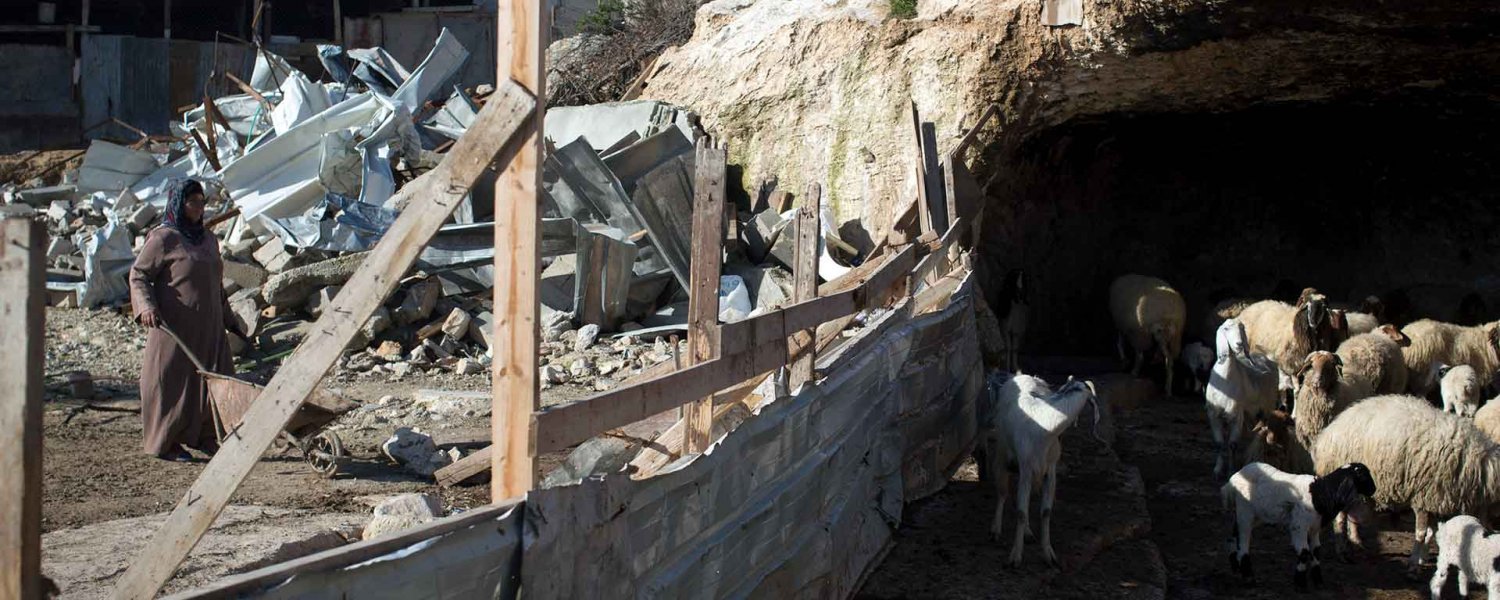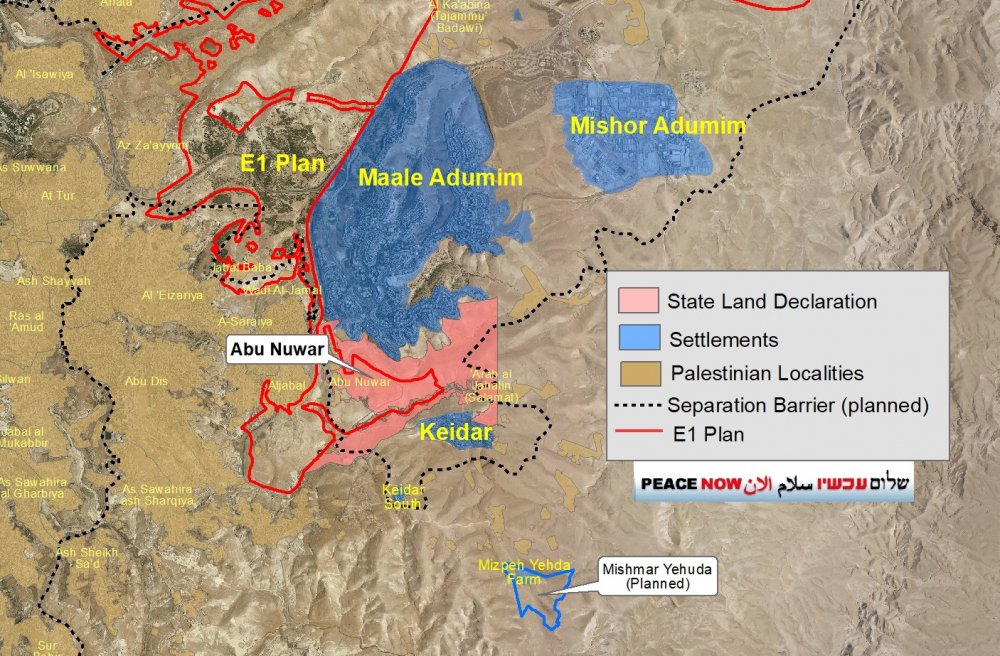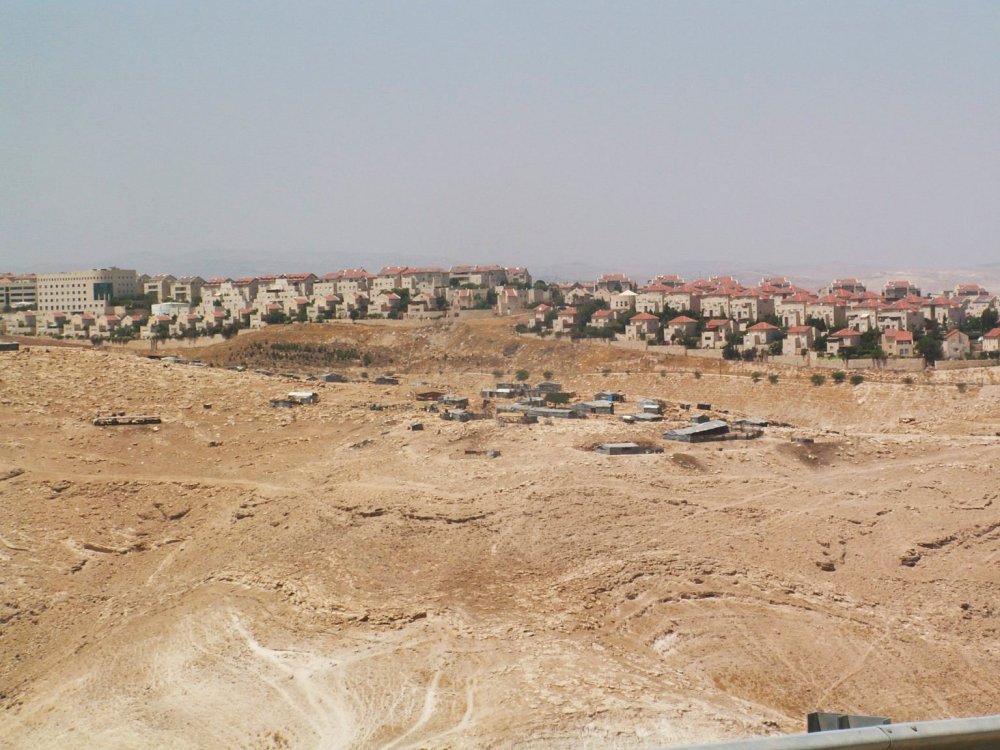Barring international intervention, mid-April will mark the final stage in Israel’s confiscation of a huge swathe of Palestinian land that is currently home to three Palestinian Bedouin communities.
These 2,640.3 dunams (654 acres) of land in the Palestinian villages of Abu Dis and al-‘Izariyya1 are part of the E1 Development Plan, a settlement bloc that Israel has slow-walked through approvals for decades, due to US and international pressure. The E1 plan would sever Palestinian routes to East Jerusalem and the southern West Bank, thus precluding a contiguous Palestinian state in the occupied West Bank.
Israeli officials declared the land “state land” on February 29, starting the clock on a 45-day complaint period that will end on or about April 11. An Israeli military court will hear the complaints but likely finalize the declaration, paving the way for the forced displacement of the herding communities that are living on and using the land.
“Whether the Israeli court accepts our appeal or refuses it, we’re not going to leave,” Daoud Eid Muhammad Jahalin, one of the 1,300 people threatened with displacement if the court moves ahead, said in an interview with Jerusalem Story.2 “We’re not going to be refugees again.”



